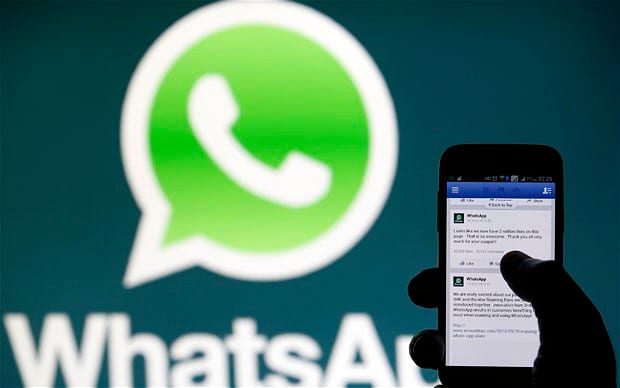Facebook fines 110 million for lying about WhatsApp purchase
The European Commission (EC) today announced the imposition of a fine of € 110 million on Facebook for providing “incorrect or misleading” information about the purchase of the instant messaging company WhatsApp, an operation to which Brussels gave its approval Good in 2014 and that will not be affected by this sanction.
“It is a proportionate and dissuasive fine,” Competition Commissioner Margrethe Vestager said in a statement stressing that such decisions by the Community Executive are a “clear signal” to companies that they must “respect the rules “Of the European Union and provide” accurate information “when they are investigated.
 The Commission considers proven that the company Mark Zuckerberg hid at the time of reporting the purchase in 2014 which already had technical developments necessary to link reliable and automatic the way customer data from both social networks, although in the Information sent to Brussels and in a later questionnaire said otherwise.
The Commission considers proven that the company Mark Zuckerberg hid at the time of reporting the purchase in 2014 which already had technical developments necessary to link reliable and automatic the way customer data from both social networks, although in the Information sent to Brussels and in a later questionnaire said otherwise.
However, in August 2016 WhatsApp offered in the updates of general conditions and privacy policy of its users the possibility of linking the phone numbers associated with the application to the corresponding profiles on Facebook.
In this context, the Community Executive formally opened a file to Facebook with the sending of a statement of charges in December 2016, in the context of an investigation that is now concluded.
However, Brussels has clarified that this sanction does not affect the purchase operation, which was approved taking into account “a number of different elements” to the ability to link the profiles of users of the two social networks and shuffled in the Scenarios studied to give the green light the hypothesis that they had that technical capacity.
Facebook defends itself
The social network Facebook said that the company acted “in good faith”, has ensured that its “mistakes” were not “intentional” and that it tried to “provide accurate information at any time” to the European Commission.
“We have acted in good faith from the beginning of our interaction with the EC and we have tried to provide accurate information at all times,” a spokesman for the social network said in a statement.
The spokesman added that “mistakes” made in 2014 in the applications sent to the EC “were not intentional” and that “the EC has confirmed that they did not affect the outcome of the evaluation of the acquisition.”












